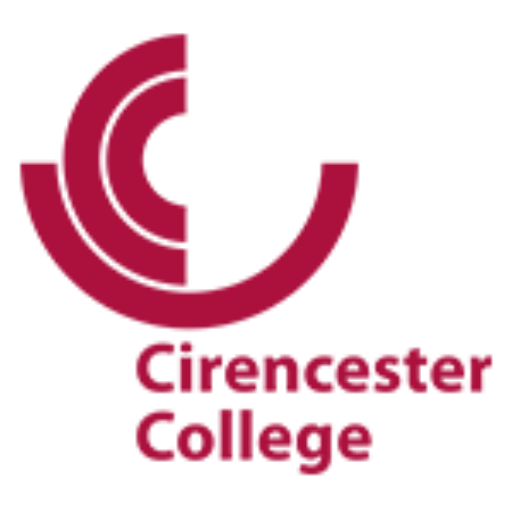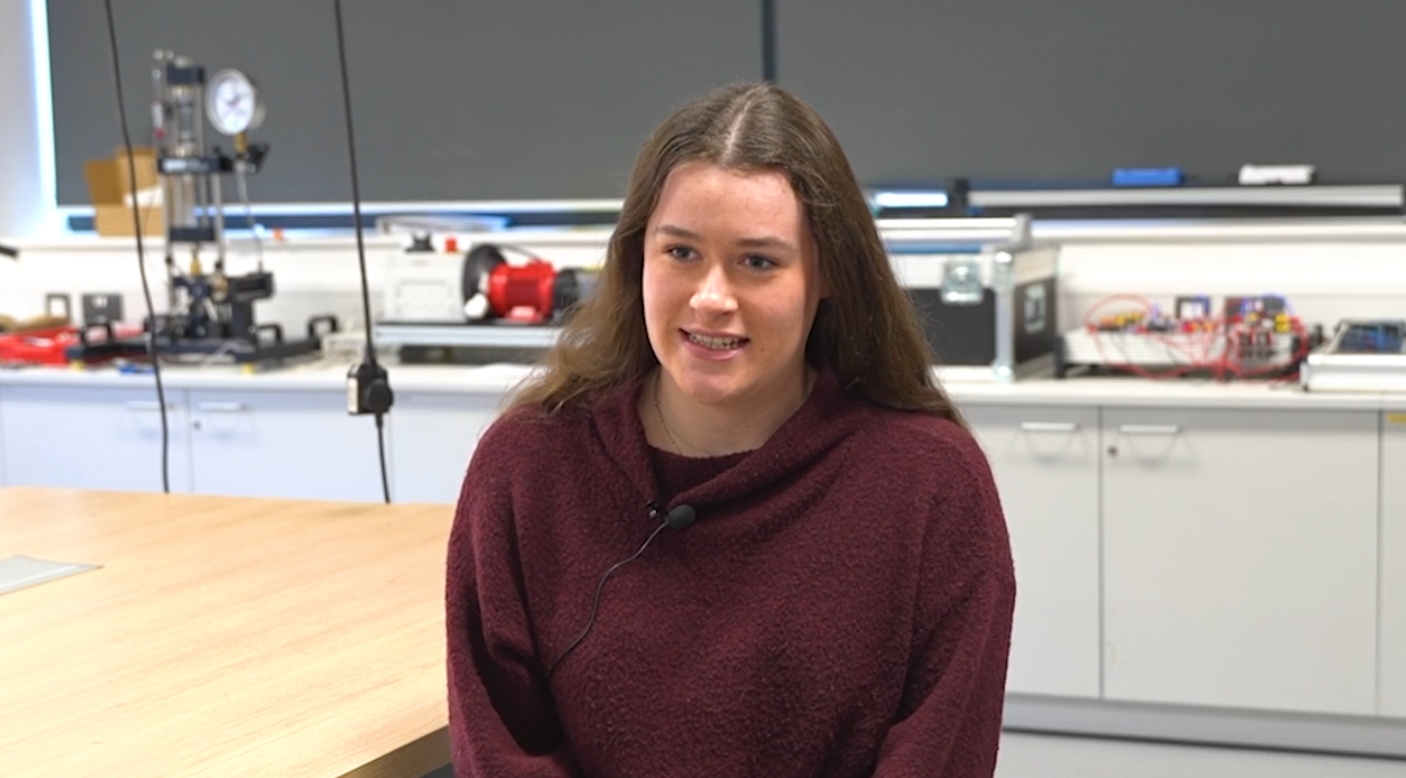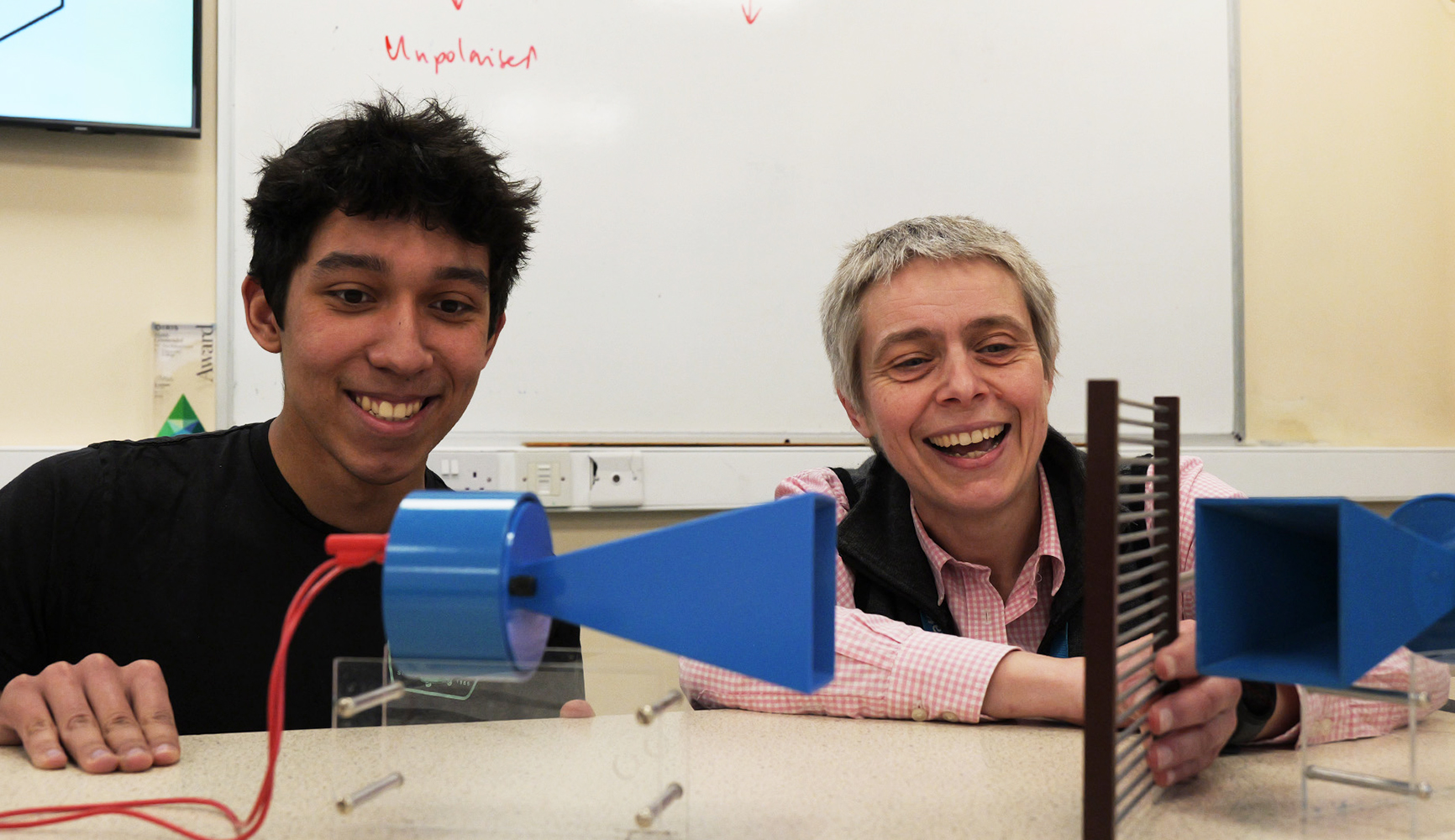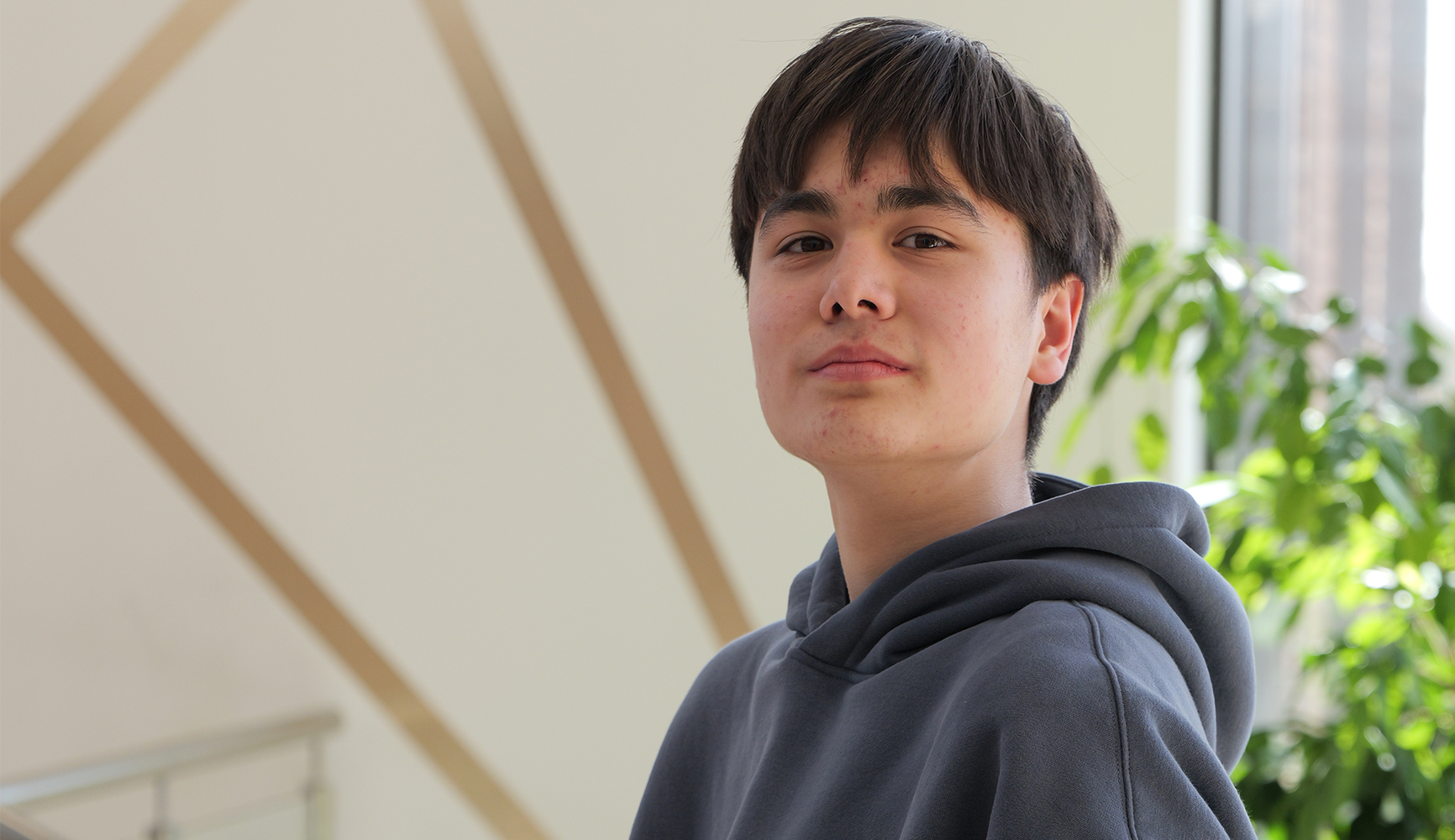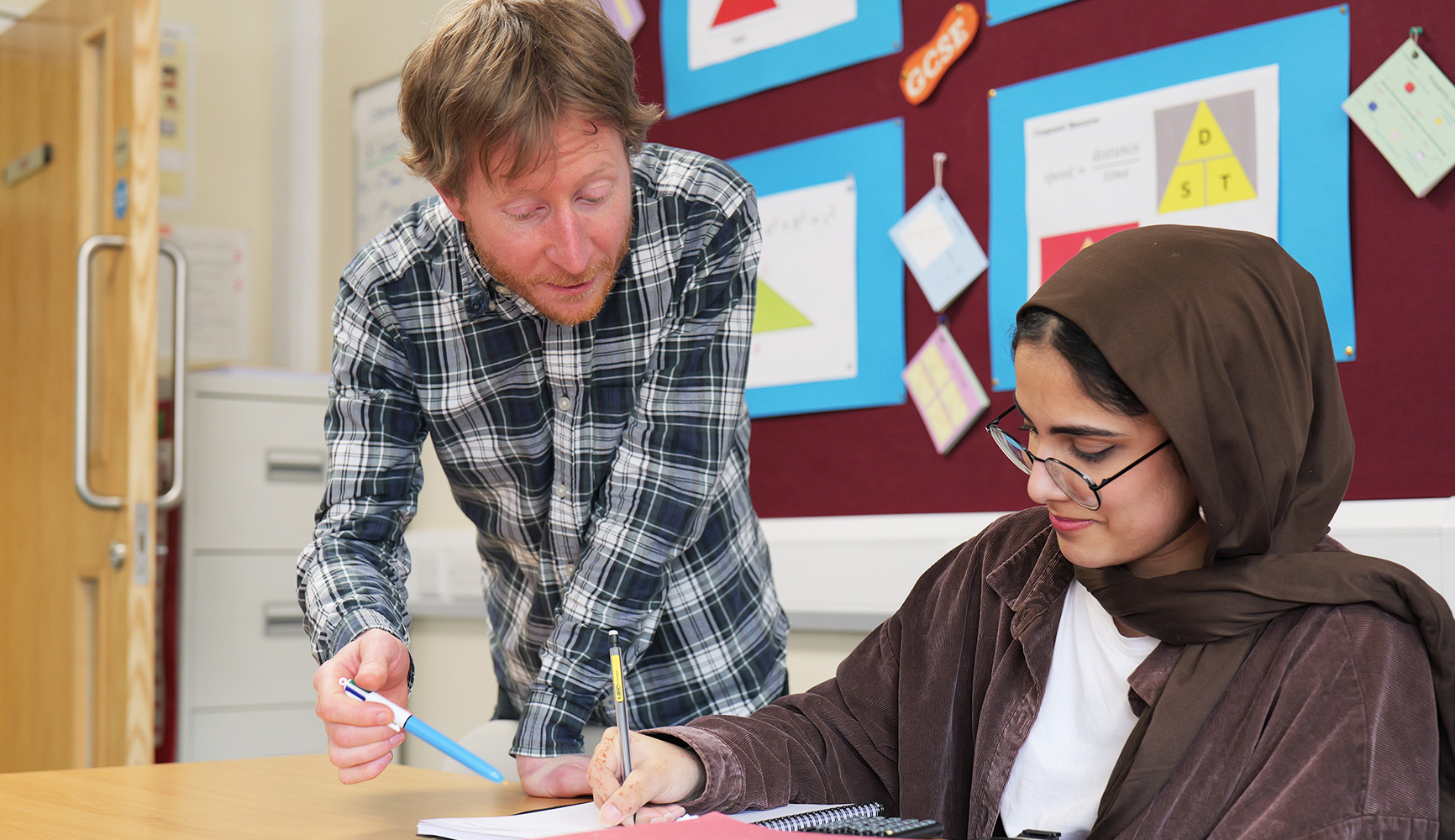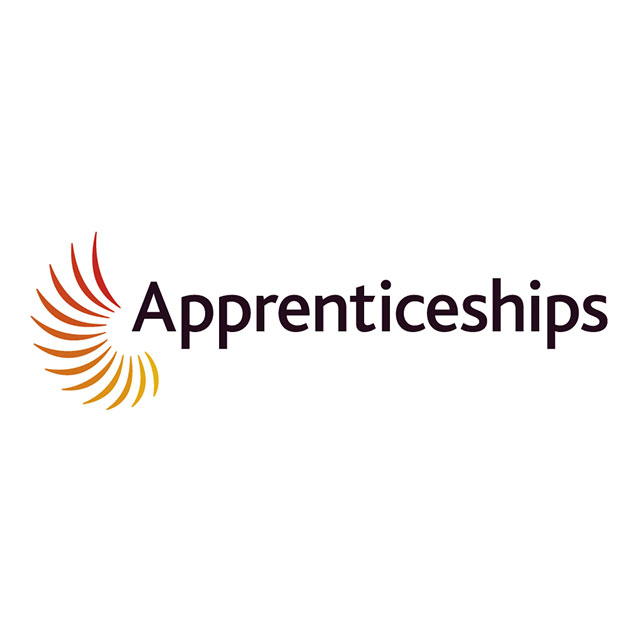DO NOT DELETE OR EDIT THIS ROW OR ITS CONTENTS

Do you have an eye for design and a curiosity to how things work? You might have the right skills to become an engineer. This course explores how materials, the environment, and practical engineering influence design and development. You’ll learn to solve real-world problems, explore career opportunities, sustainable green engineering, and commercial applications. The Engineering T-level at Cirencester College offers specialisms in Mechanical Engineering and Electrical/Electronic Engineering, with each culminating in a relevant project-based exam.
What will I study in Engineering T-levels?
You will study a range of core modules from typical Engineering modules such as:
- Working within the Engineering and Manufacturing Sectors
- Essential mathematics for engineering and manufacturing
- Essential science for engineering and manufacturing
- Materials and their properties
- Mechanical principles
- Electrical and electronic principles
- Health and Safety
- Engineering: Past, Present and Future
to more business focused modules, such as:
- Recognised standards in engineering and manufacturing
- Professional responsibilities, attitudes, and behaviours
The full list can be found at the website below:
Employer-set project (ESP)
The employer-set project ensures students have the opportunity to combine core knowledge and skills to develop a substantial piece of work in response to a set brief, this will be a scenario based assessment. The employer-set project forms part of the Technical Qualification and is a separate part of the T Level programme to the Industry Placement.
Occupational Specialist Content
Specialist content is structured into different occupational specialisms, which correspond to the standards listed on the relevant occupational map. Occupational specialisms ensure students develop the knowledge and skills necessary to achieve a level of competence needed to enter employment in the occupational specialism, and are organised around ‘performance outcomes’ that indicate what the student will be able to do, as a result of learning and applying the specified knowledge and skills.
There are three different occupational specialisms offered at Cirencester College within the Engineering T Level:
- Mechanical Engineering
- Electrical / Electronic Engineering
- Manufacturing Engineering
Each specialism follows the same Core subjects and sit the same 2 Core exams, there are different Employer Set Projects for each pathway, either Design and Development for Engineering and Manufacturing for Mechanical and Electrical/Electronic Engineering or Manufacturing, Processing and Control Fitting and Assemblies. Each of the Occupational Specialisms have their own Occupational Specialism exam at the end of the second year based on a project relevant to that specialism.
Industry Placement
An important part of the course is the industry placement, which is a requirement for 315hours to be spent in the workplace. This element of the course is compulsory, and you will learn professional skills with up to two host organisations relevant to your qualification. You will need to be flexible in your approach, and apply for positions when they become available. It may require you to travel to a host company. You'll log all your hours, and there will be three reviews of your progress.
Entry Requirements
5+ GCSEs at Grade 4 or above from the core subjects, including English Language and Grade 5 in Maths.
Students will also enrol on Higher GCSE Maths unless already have Grade 7 or above.
How will I learn?
During the early stages of the core, we will develop your presentation skills, building your confidence. The core content is very theory based, however delivery will vary from lecturer presentations (particularly in the maths and science based modules), Dragon's Den style projects, case studies and group projects. We utilise the resources that we have available within the engineering department and wider college in order to make learning more closely aligned to industry practices.
There will be expectations for independent study and additional materials will be provided to enable you to enhance and stretch your knowledge and understanding. Although we will provide time for revision and past papers in the run up to tests and exams, there will also be an expectation that this will also be completed on your own time.
We have projects that will encompass different units of the core, for example the design and build of a self balancing robot, which includes CAD work, electrical and electronics (arduino), project management and teamwork. We have an excellent workshop facility and we will introduce you throughout the year to various tools and machines, look at Health and Safety within the workshop and complete your 'Workshop Passport'.
All of these skills will set you up for the Occupational Specialism in year 2 of the course. The specialisms will focus on your chosen area, building on your CAD skills if you have chosen the Design pathways, workshop skills for all pathways and building towards your final Occupational Specialism assessment.
A key component of the T level is the work placement. This equates to 45 days (315 hours) of your course.
How will I be assessed?
- 2 Core exam papers taken in June of Year 1. Each paper is 2.5 hours long.
- An 15-18.5 hour Employer Set Project in November of Year 2. This is sat within a 3 week exam window. (Length of project varies by specialism)
- A 28-34 hour Occupational Specialism Assessment in April/May of Year 2. This will be conducted over a 5 week exam window. (Length of assessment varies by specialism)
- Minimum 315 hours of work placement with one or two employers across the 2 years of the course
Any trips?
YES!!!
We will be organising a number of various trips to take advantage of the excellent situation within which Cirencester lies - at the heart of much of the best of British Engineering.
Companies such as:
- Amazon
- Renishaw
may be possible options to visit, but we will also visit a number of different sites, such as Thorpe Park, Airbus and other engineering related museums.
Are there any costs involved?
There will be costs for transport to your work placement, students with travel passes from Stagecoach may be able to use those passes if the placement is on the network, but please check with Stagecoach in advance.
Trips will involve some cost to the students, for example the Amazon trip will cost around £2 per student, Thorpe Park trip is usually in the region of £25. Trip costs will be kept to a minimum where possible.
Some site visits may require PPE to be worn, normally safety shoes/boots. These may also be required for the Industry Placement element and also for the final Occupational Specialism assessment.
A laptop suitable for CAD work would be useful but not compulsory for this course. https://www.cirencester.ac.uk/wp-content/uploads/filr/78325/LAPTOP REQUIREMENT FOR T LEVELS.pdf
Cirencester College offers a generous Bursary Scheme, which may be able to assist with the cost of these items. All details can be found under Financial Support.
Device Requirements
Windows Gaming Laptop (16GB RAM | Ryzen 5th Gen/Intel i5 12th Gen or above preferably with a GPU)
If you already own a device that meets the technical requirements of your course, you are welcome to bring it with you to college.
If not, more information on a convenient rental and help-to-buy scheme designed specifically for Cirencester College students is linked below.
FAQs
There is a lot of Maths involved in Engineering so the standard is quite high. We will teach all the necessary components, some of which is equivalent to the standard in A level maths. It's important to have a solid platform in maths skills, so if you have a grade 5 in GCSE, we will ask you to do more maths-specific study in Higher Maths GCSE to go alongside the Maths you study in your Engineering programme.
Yes, You have at least 315 hours (equivalent to 9 weeks) of work placement. Some of your units in College will have a practical element to them as well as sessions in the workshop to help develope the hands on skills. The Occupational Specialism will have practical elements. There are also large parts of the the curriculum which are theory based and you will be assessed in traditional exams. These parts of the curriculum are classroom-based and not practical; they will involve science and maths.
A T Level in Engineering is a powerful stepping stone to a wide range of exciting futures. It carries the same UCAS points as three A Levels, which means it’s recognised by universities across the UK. Many learners go on to study engineering-related degrees in areas like mechanical, electrical, civil, or aerospace engineering.
You can also progress into a full apprenticeship (Levels 3, 4 or 6), where you’ll continue learning while earning a wage. These apprenticeships can lead to roles such as design engineer, manufacturing technician, or product development specialist.
For those ready to enter the workforce, the T Level equips you with the technical skills and industry experience to move straight into employment or even start your own business in the engineering or manufacturing sectors.
Whether your goal is university, an apprenticeship, or a job, this T Level gives you the knowledge, experience, and confidence to take the next step.
Students will be supported in searching for a work placement that is suitable for them. This will ensure that the placement is in a location students can get to, in a field that they are interested in, and enhances life skills in the application for these roles.
Awarding Body
City and Guilds
Available As
[168 UCAS pts. available]

Add to Application
What can I do after I have taken this course?
Available As
[168 UCAS pts. available]

Add to Application

DO NOT DELETE OR EDIT THIS ROW OR ITS CONTENTS

